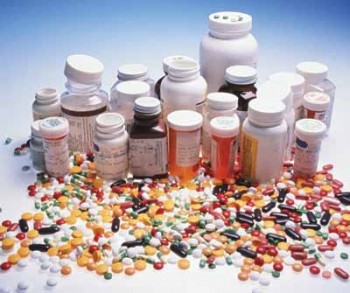
One of our responsibilities on the floor is to reconcile the patient's Medication Record in the chart with the Electronic Medical Record of medications in the computer. It is the nurses responsibility to ensure that what the patient and doctor have concluded as being the patient's actual medication, route of delivery, dose, and reasoning for taking is accurate. So, questions.......

1. Does the use of the Electronic Medical Record guarantee error-free patient care?
I say there is really never 'guarantee' when the human element is added to anything. However, by using this double check, there is the opportunity to catch any human errors that may have occurred. I have personally caught errors when reviewing this document. It is usually an error of entry into the computer by the pharmacy or a deciphering error of the written record. There is clearly an improved opportunity to provide the best quality care for patient's medication records by using an electronic system that is double checked by the nurse. Just take into consideration that where there is the human element, there is always a possibility for error.

2. What types of nursing behavior regarding the use of Electronic Medical Record's might contribute to jeopardizing patient safety?
I would say that error in relation to the human element includes occurrences involving interpretation of hand written orders by secretaries and nurses, not to mention the doctor who wrote the order. The alertness of the nurse. Shortages of nurses and/or under staffing can emerge in nurses who are tired. Also, nurses can become overwhelmed with duties and may tend to rush through tasks. There is always a good chance of error when rushing on the job. Lastly, if there is a way to short cut the procedure, some nurses may take advantage of that and skip steps or even just note the medication record assuming it is correct without really reviewing it. These are all ways that may contribute to patient safety with regard to medications.

3. What are the dangers of excessive system alerts in computer charting systems?
I think the number one danger of excessive system alerts is they become so common place that they are skipped over or not taken seriously. It's a matter of, "oh there is that message again, just hit escape and move on". Nurses are moving fast from the moment they come on shift. They hit the floor running and don't stop for at least 12 hours. Excessive system alerts can get in the way and nurses can become really skilled at finding ways around them.

4. How can the nurse guard against the potential effect?
The best way to ensure you're doing a good job as a nurse and providing excellent patient care and safety is to slow down, pay attention and do your best. I have found this to be true as a new nurse. I have felt on several occasions that going to work on my own without a clinical coach is like drinking all day out of a fire hydrant. But, I have been conscientiously working on slowing down every time I stop at the acudose to get a medication, take a breath and really focus on the medication, dose, and accuracy of what I am putting in my patient's hands. I speed up where I can but I do take time to stop and take a breath.... it really can make a difference. I would rather be late in charting something or even late in giving a medication as long as I know I took the time to do the job right and not rush pass safety nets that have been placed before me to help me do my job safely.

No comments:
Post a Comment